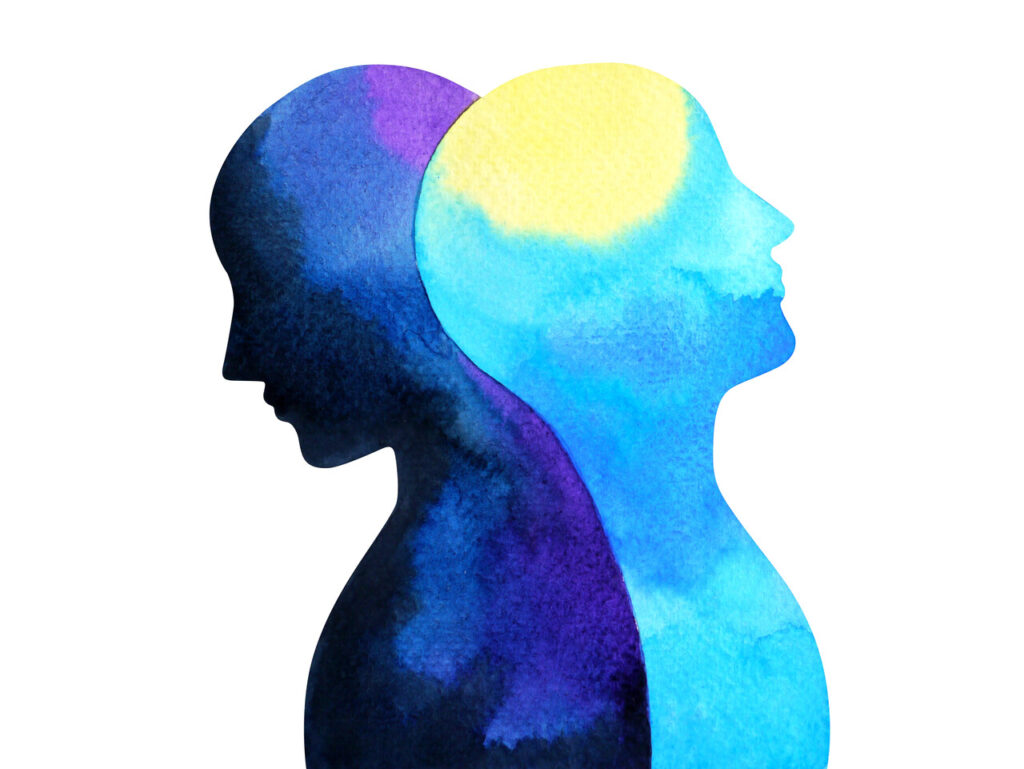Understanding Psychotherapy for Relationship Issues
Importance of Seeking Psychotherapy
In our journey through relationships, we may encounter conflicts and challenges that seem insurmountable. Seeking psychotherapy for relationship issues is a proactive step that can provide us with valuable tools and insights to navigate these difficulties. Psychotherapy helps us understand and communicate our feelings more effectively, leading to healthier and more fulfilling relationships.
The importance of seeking psychotherapy cannot be overstated. It can improve our mental well-being and overall quality of life. When we address relationship issues with the help of a psychotherapist, we gain new perspectives and strategies to deal with our concerns. This can be particularly beneficial for:
- Enhancing communication skills
- Resolving conflicts amicably
- Building trust and intimacy
- Managing emotional stress
For those interested in learning about psychotherapy for other concerns, such as anxiety, depression, and stress management, our related articles provide additional insights.
How Psychotherapy Can Help with Relationship Issues
Psychotherapy offers targeted interventions to address the unique challenges we face in our relationships. By engaging in therapy, we can identify the root causes of our issues and develop strategies to overcome them. Here’s how psychotherapy can help with relationship issues:
1. Improving Communication
Effective communication is critical for any relationship. Psychotherapy helps us develop active listening skills and express our thoughts and emotions without causing misunderstandings. This fosters a deeper connection between partners.
2. Rebuilding Trust
Trust issues can erode the foundation of a relationship. Through therapeutic techniques, we can work on rebuilding trust by addressing past wounds and developing new ways of interacting that emphasize honesty and reliability.
3. Enhancing Intimacy
Intimacy issues can manifest in various forms, from emotional disconnection to physical distance. Psychotherapy can help us explore these concerns in a safe environment, promoting mutual respect and a stronger emotional bond.
4. Managing Conflicts
Conflicts are inevitable in any relationship. What matters is how we handle them. Psychotherapy equips us with conflict resolution skills, enabling us to approach disagreements constructively and find mutually satisfying solutions.
| Benefit of Psychotherapy | Description |
|---|---|
| Communication | Enhances active listening and expression |
| Trust | Addresses past wounds and rebuilds reliability |
| Intimacy | Explores concerns to strengthen emotional bonds |
| Conflict Management | Provides constructive conflict resolution skills |
For those looking to delve deeper into specific areas, consider exploring articles on psychotherapy for trauma, psychotherapy for self-esteem, and psychotherapy for social anxiety.
By understanding the importance and benefits of psychotherapy for relationship issues, we can take the necessary steps towards healthier, more fulfilling connections with our partners.
Signs that Psychotherapy Might Be Beneficial
When it comes to relationships, every partnership faces its own unique set of challenges. Recognizing when to seek help through psychotherapy can make a significant difference in the quality and longevity of our relationships. Here are some signs that psychotherapy might be beneficial:
Communication Challenges
Effective communication is foundational in any relationship. When we struggle to communicate, it can lead to misunderstandings, arguments, and resentment. Signs that we may benefit from psychotherapy include frequent arguments, feeling misunderstood, or fearing to express our true feelings.
Common Communication Challenges
| Challenge | Description |
|---|---|
| Frequent Arguments | Regular disagreements that escalate quickly |
| Feeling Misunderstood | Believing that our partner does not understand our needs or perspectives |
| Fear of Expression | Avoiding conversations to prevent conflicts |
Seeking psychotherapy for relationship issues can help us develop healthier communication skills and create a safe space for open dialogue.
Trust Issues
Trust is a critical component of any healthy relationship. When trust is broken, it can be challenging to rebuild. Trust issues can arise from past betrayals, insecurities, or misunderstandings. If we find ourselves constantly questioning our partner’s intentions or feeling untrustworthy ourselves, it might be time to seek professional help.
Indications of Trust Issues
| Issue | Example |
|---|---|
| Constant Suspicion | Frequently doubting our partner’s actions or statements |
| Feeling Insecure | Experiencing persistent feelings of jealousy or inadequacy |
| Difficulty Forgiving | Struggling to move past previous betrayals or disappointments |
Engaging in psychotherapy for relationship issues can provide strategies to rebuild trust and foster a secure bond.
Intimacy Concerns
Intimacy extends beyond physical connection; it encompasses emotional closeness and vulnerability. Struggles with intimacy can manifest as a lack of physical affection, emotional distance, or sexual issues. Recognizing these concerns can prompt us to seek therapy.
Intimacy Concerns
| Concern | Description |
|---|---|
| Lack of Physical Affection | Reduced or absent displays of physical touch and affection |
| Emotional Distance | Feeling disconnected emotionally or avoiding deep conversations |
| Sexual Issues | Experiencing a decline in sexual desire or satisfaction |
By addressing these concerns through psychotherapy for relationship issues, we can work towards restoring intimacy and strengthening our connection.
It’s important to recognize these signs and act to seek help when needed. Our willingness to address these issues head-on with the guidance of a therapist can pave the way for healthier, more fulfilling relationships. For further reading on related topics, consider exploring psychotherapy for anxiety or psychotherapy for depression.
Types of Therapy for Relationship Issues
When addressing relationship challenges through psychotherapy, it’s crucial to select the appropriate type of therapy. Here, we will explore the different options available: couples therapy, family therapy, and individual therapy.
Couples Therapy
Couples therapy is designed for partners who are experiencing difficulties in their relationship. This type of psychotherapy aims to improve communication, resolve conflicts, and strengthen the bond between partners.
In couples therapy, both partners attend sessions together, guided by a trained therapist. The therapist facilitates discussions, helping couples to understand each other’s perspectives and work towards common goals. This approach can be beneficial for tackling issues such as communication challenges, trust issues, and intimacy concerns within the relationship.
Family Therapy
Family therapy involves multiple family members and addresses problems that affect the entire family unit. This type of psychotherapy is helpful when relationship issues are intertwined with family dynamics, involving not just the couple but also children or other relatives.
Family therapy sessions focus on improving communication among family members, resolving conflicts, and fostering a supportive family environment. The therapist works with the entire family to identify patterns of behavior that contribute to relationship issues and develop strategies to change these patterns.
Individual Therapy
Individual therapy is a one-on-one session with a therapist, focusing on personal issues that may be affecting the individual’s relationships. This type of psychotherapy allows individuals to explore their thoughts and feelings, gain insight into their behavior, and develop strategies to improve their relationships.
Individual therapy can be especially beneficial for those dealing with personal challenges such as anxiety, depression, or past trauma. By addressing these underlying issues, individuals can work towards healthier relationships. For more information on how individual therapy can help with specific issues, explore articles on psychotherapy for anxiety, psychotherapy for depression, and psychotherapy for trauma.
| Type of Therapy | Focus | Benefits |
|---|---|---|
| Couples Therapy | Partners | Improves communication, resolves conflicts, strengthens bond |
| Family Therapy | Family members | Enhances family dynamics, resolves family-wide issues, improves support |
| Individual Therapy | Individual | Addresses personal issues, enhances self-awareness, improves individual relationships |
Each type of therapy has its own unique approach and benefits. By understanding the differences between couples therapy, family therapy, and individual therapy, we can make informed decisions about which type of psychotherapy is best suited for our relationship issues.
Finding the Right Therapist
Choosing the right therapist is a crucial step in the journey of addressing relationship issues through psychotherapy. Here’s what we need to consider when looking for a qualified and compatible therapist.
Qualifications to Look For
The qualifications of a therapist are fundamental in ensuring that they have the necessary training and credentials to help us effectively. Some important qualifications to look for include:
- Educational Background: A master’s or doctoral degree in psychology, counseling, or a related field.
- Licensure: Licensed Marriage and Family Therapist (LMFT), Licensed Professional Counselor (LPC), or Licensed Clinical Social Worker (LCSW).
- Certifications: Certifications in specific therapeutic techniques or specializations, such as cognitive-behavioral therapy (CBT) or interpersonal therapy (IPT).
| Qualification | Description |
|---|---|
| Educational Background | Master’s or doctoral degree in a related field |
| Licensure | LMFT, LPC, or LCSW |
| Certifications | CBT, IPT, etc. |
Additionally, experience in dealing with relationship issues is vital. We should inquire about the therapist’s familiarity with psychotherapy for relationship issues to ensure they have relevant expertise.
Compatibility with Therapist
Compatibility with a therapist is essential for us to feel comfortable and supported throughout our therapy sessions. Several factors influence this compatibility, including:
- Therapist’s Approach: Whether their therapeutic approach and methods align with our expectations and comfort levels.
- Communication Style: How well their communication style matches our preferences, ensuring they are attentive, empathetic, and able to listen effectively.
- Personal Connection: Feeling a sense of trust and connection with the therapist, which is crucial for open communication and progress.
Having an initial consultation can help us gauge compatibility. During this session, we can discuss our specific needs and concerns to see if the therapist’s approach aligns with our goals. For detailed guidance on other psychotherapy options, exploring psychotherapy for anxiety and psychotherapy for depression might also be beneficial.
We should remember that finding the right therapist may take some time and effort, but it is a worthwhile investment in our mental health and relationships. Whether seeking help for trust issues, communication challenges, or intimacy concerns, the right therapist can make a significant difference in our journey towards healthier relationships.
What to Expect in Therapy Sessions
Initial Assessment
The journey of psychotherapy for relationship issues begins with an initial assessment. During this session, the therapist will gather relevant information about our relationship, including the challenges we are facing and our goals for therapy. This assessment helps the therapist understand our unique situation and develop a tailored treatment plan.
| Aspect | Description |
|---|---|
| Duration | Typically 60-90 minutes |
| Focus | Relationship history, current issues, goals |
| Outcome | Personalized treatment plan |
The initial assessment is crucial as it sets the foundation for the therapeutic process. The therapist may ask about our communication patterns, conflict resolution strategies, and any significant events that have impacted our relationship. Answering these questions openly and honestly will ensure that the therapist has a comprehensive understanding of our situation.
Goal Setting
After the initial assessment, the next step is goal setting. Together with the therapist, we will identify specific, measurable, attainable, relevant, and time-bound (SMART) goals for our therapy sessions. These goals will guide the therapy process and provide a clear direction for our progress.
| Goal Type | Example |
|---|---|
| Communication Skills | Improve active listening skills |
| Trust Building | Develop strategies to rebuild trust |
| Conflict Resolution | Learn techniques for healthy conflict resolution |
Setting goals helps us stay focused on what we want to achieve and allows us to track our progress throughout the therapy. The therapist will support us in breaking down these goals into manageable steps and developing strategies to overcome any obstacles we may encounter.
Homework Assignments
Homework assignments are an integral part of psychotherapy for relationship issues. These assignments are designed to reinforce the skills and insights we gain during therapy sessions. By practicing these skills in real-life situations, we can see tangible improvements in our relationship.
| Assignment Type | Example |
|---|---|
| Communication Exercise | Practice active listening with a partner for 10 minutes daily |
| Trust Exercise | Keep a trust journal and note instances where trust is built or broken |
| Conflict Resolution Task | Apply a conflict resolution technique during a disagreement and reflect on the outcome |
Completing homework assignments enhances our commitment to the therapeutic process and accelerates our progress. Our therapist will provide guidance and support as we work on these assignments, ensuring we feel confident and capable in applying the techniques we learn.
Understanding what to expect in therapy sessions helps us feel more prepared and confident as we embark on our journey of psychotherapy for relationship issues. For more insights on different therapeutic approaches, explore our articles on psychotherapy for anxiety, psychotherapy for depression, and psychotherapy for trauma.
Navigating Through Psychotherapy
Patience and Persistence
When we embark on the journey of psychotherapy for relationship issues, patience and persistence are essential. It’s important to understand that progress in therapy can be gradual, and we may not see immediate changes. Consistent effort and dedication to the process can yield lasting improvements in our relationship dynamics.
Patience allows us to manage our expectations and avoid disappointment if results are not instant. Persistence helps us to continue attending sessions and applying the lessons learned, even when the process feels challenging.
Open Communication
Open communication is a cornerstone of effective psychotherapy. During therapy sessions, we need to express our thoughts and feelings honestly. This transparency enables the therapist to gain a clear understanding of our issues and provide the most effective guidance.
Open communication also involves active listening. We need to listen to our partner, the therapist, and ourselves to fully engage in the therapeutic process. This approach can foster mutual understanding and collaboration, facilitating the resolution of relationship issues.
Self-Reflection and Application of Learnings
Self-reflection is a critical component of psychotherapy. We should take the time to reflect on our behaviors, emotions, and patterns that contribute to relationship challenges. This introspection can lead to valuable insights and self-awareness.
Applying what we learn in therapy to our daily lives is equally important. Whether it’s utilizing new communication strategies, practicing empathy, or setting healthy boundaries, the practical application of therapeutic lessons can lead to meaningful changes.
| Key Actions | Benefits |
|---|---|
| Patience | Sustainable progress, reduced frustration |
| Persistence | Continued growth, overcoming challenges |
| Open Communication | Better understanding, effective therapy |
| Self-Reflection | Increased self-awareness, recognizing patterns |
| Application of Learnings | Practical improvements, lasting change |
By navigating through psychotherapy with patience, persistence, open communication, and a commitment to self-reflection and application of learnings, we can effectively address and resolve our relationship issues. For additional guidance on related topics, you can explore articles on psychotherapy for anxiety, psychotherapy for depression, and psychotherapy for stress management.














